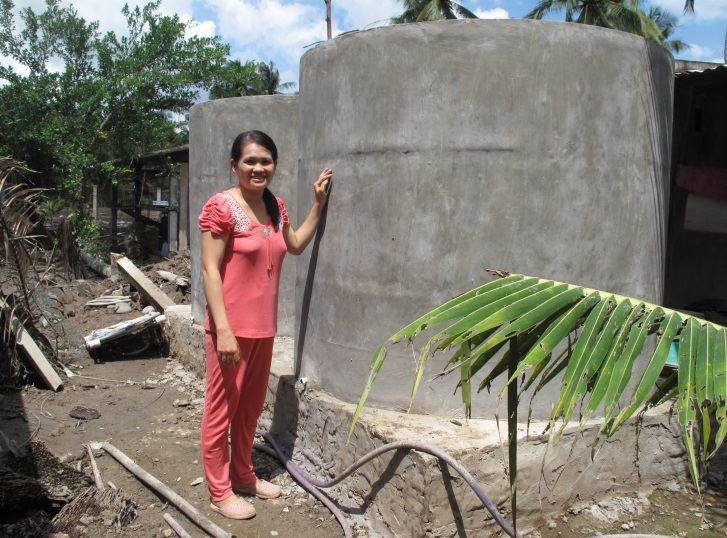Background

Serious drought in Ben Tre 2016
The serious drought and salinity in Ben Tre other Mekong river delta provinces of Vietnam in the beginning of 2016 was declared as a natural disaster by the government. The shortage of fresh water for human consumption and agricultural production is especially affecting poor people living near the coastal areas.

A family lacks fresh water
Global Climate change is increasingly making direct impacts on the living situation of huge numbers of people in developing countries whose livelihoods depend strongly on natural conditions. People who earn their living from agriculture, fisheries and aquaculture are the most vulnerable. Natural events such as typhoons, floods, droughts and saline intrusion are happening more often and more intensely in recent years, eroding people’s assets and investments and pushing many back into poverty. The salinity in the main rivers (4‰ isohaline) had intruded about 45-65km from river mounths and the whole of Ben Tre province was covered by water with a salinity of 1‰. More than 20,000ha of rice in Spring-Summer crop had been lost. About 8,500 ha of fruit trees were partly damaged by the drought and salinity. More than 98,000 households (about 400,000 people) lack fresh water because they do not have enough containers to store rain water.
MCNV’s responses
MCNV quickly responded to the climate change issues in Ben Tre for the poorest people who are suffering most from the drought and salinity. The aim of MCNV is to create a sustainable mechanism which could help the poor maintain and step by step adapt their livelihoods to the more difficult natural conditions.
From May 2016, MCNV provided loans to help families to build big water containers to retain more rain water for human consumption during dry season. Loans from MCNV microfinance project in Binh Dai district allow poor family to build high capacity water container of about 3m3 each. Loans should be paid back monthly over 12 to 24 months so that it is convenient also for the poor. Up to August 2016, 150 households have borrowed from the MCNV project to build 286 big water containers with total capacity of 858m3. The loans for water containers will be available throughout this year and in coming years to create access for the poor to store more fresh water. Many more people can be supported by loans than with one time grant support.

A mushroom production workshop
With financial support from Jumpstart Foundation, MCNV collaborates with the Ben Tre provincial Women’s Union to establish women cooperatives, which provide stable jobs and income for poor women. These jobs help poor families to adapt to climate change by reducing their dependency on farming. Five women cooperatives will be established in Binh Dai and Ba Tri district for the production of mushrooms and dried fish, that will create jobs for at least 100 poor women. These cooperations will be the first test for more productive models for poor women in the future.
Future plan
MCNV would like to establish a livelihood adaptation knowledge website to share our field experience to help poor communities to improve their livelihoods by adapting to climate change. We believe this could be very helpful for other places and people who are facing the same problems.
At the same time, MCNV also looks for Corporate Social Responsibility programs to supply water containers to kindergartens, commune health centers and friendship houses for extreme poor people in Ben Tre. Creative trainings on adapted livelihoods should be provided widely to raise awareness for everyone to better prepare them for unavoidable climate change.

First members of dried fish women cooperative
Climate change impacts on livelihoods are very complex and many more poor communities will need comprehensive support to adapt to new situations. MCNV expects to find additional development partners to do practical field research and bring innovative methods that could help poor communities to stablise their lives and overcome the additional challenges from climate change.
This intervention records the first foot print of MCNV into the Climate Change sector. MCNV commits to support poor communities to adapt their livelihoods with best effective and innovative approaches to make this effort sustainable and helpful to poor people.




